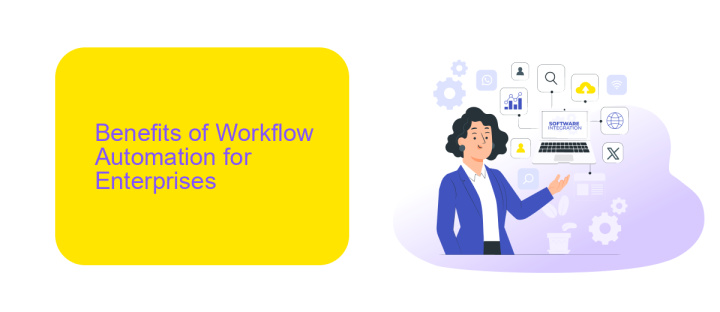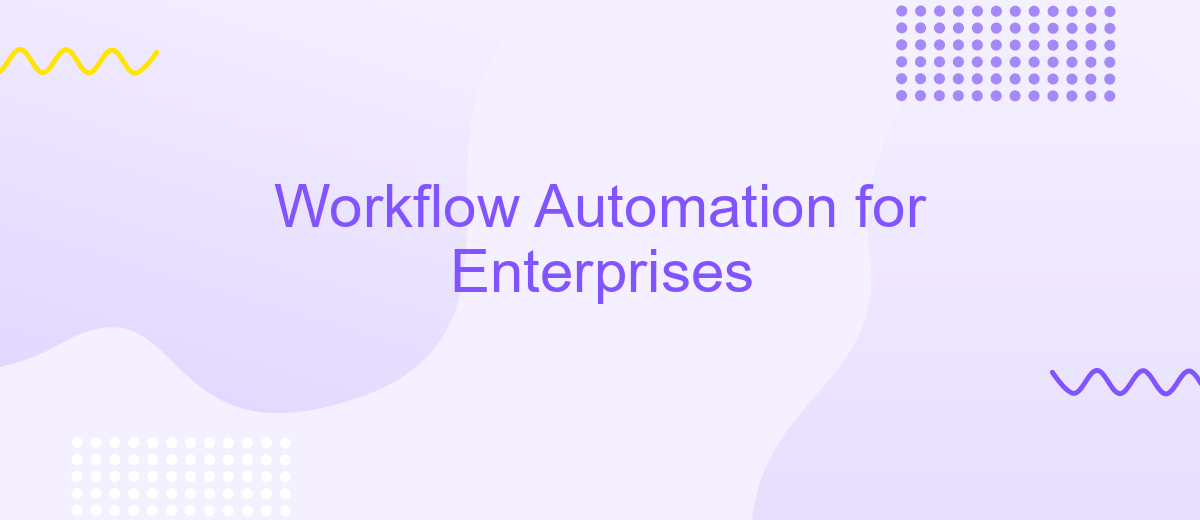Workflow Automation for Enterprises
In today's fast-paced business environment, workflow automation has become a critical asset for enterprises striving to enhance efficiency and reduce operational costs. By automating repetitive tasks and streamlining complex processes, companies can focus on strategic initiatives, improve accuracy, and accelerate decision-making. This article explores the benefits, implementation strategies, and key considerations for adopting workflow automation in enterprise settings.
Introduction
Workflow automation is revolutionizing the way enterprises operate by streamlining processes, reducing manual tasks, and enhancing overall efficiency. This transformation allows businesses to focus on strategic initiatives, driving growth and innovation. With the advent of advanced technologies, enterprises can now automate complex workflows, ensuring consistency and accuracy.
- Increased productivity through reduced manual intervention
- Enhanced accuracy and consistency in task execution
- Improved compliance and audit trails
- Seamless integration with existing systems
One of the key components of successful workflow automation is the integration of various applications and services. Tools like ApiX-Drive facilitate this by offering a user-friendly platform for connecting disparate systems without the need for extensive coding. By leveraging such services, enterprises can ensure smooth data flow and synchronization across different departments, further optimizing their operations and achieving their business goals.
Benefits of Workflow Automation for Enterprises

Workflow automation offers numerous benefits for enterprises, significantly enhancing efficiency and productivity. Automating repetitive tasks reduces the likelihood of human error, ensuring more accurate and reliable outcomes. This leads to faster completion of tasks and allows employees to focus on more strategic activities that require human intelligence and creativity. Additionally, workflow automation can streamline communication and collaboration across departments, fostering a more cohesive work environment.
Integrating various applications and services is crucial for seamless workflow automation. Tools like ApiX-Drive facilitate these integrations by enabling businesses to connect different software platforms effortlessly. This ensures that data flows smoothly between systems, eliminating the need for manual data entry and reducing the risk of data inconsistencies. By leveraging such integration services, enterprises can optimize their workflows, improve data accuracy, and ultimately drive better business outcomes. In summary, workflow automation not only boosts operational efficiency but also enhances overall organizational performance.
Types of Workflow Automation Solutions

Workflow automation solutions come in various forms, each designed to streamline specific business processes and enhance operational efficiency. These solutions can be tailored to meet the unique needs of different enterprises, allowing for greater flexibility and productivity.
- Task Automation: Automates repetitive tasks such as data entry, scheduling, and reporting, freeing up employees to focus on more strategic activities.
- Process Automation: Streamlines complex business processes by automating entire workflows, from initiation to completion, ensuring consistency and accuracy.
- Integration Automation: Integrates various software applications and services to ensure seamless data flow between systems. Tools like ApiX-Drive facilitate these integrations, allowing businesses to connect multiple applications without the need for extensive coding.
- Decision Automation: Utilizes artificial intelligence and machine learning to make data-driven decisions, enhancing the speed and accuracy of business operations.
By leveraging these types of workflow automation solutions, enterprises can significantly reduce manual effort, minimize errors, and improve overall efficiency. Selecting the right combination of automation tools is crucial for optimizing business processes and staying competitive in today's fast-paced market.
Implementation Considerations

When implementing workflow automation in an enterprise, it's crucial to consider several factors to ensure a smooth transition and effective operation. First, an in-depth analysis of existing workflows is necessary to identify bottlenecks and repetitive tasks that could benefit from automation.
Next, selecting the right tools and technologies is essential. Opt for solutions that offer scalability and flexibility, allowing the system to grow with the business. Integration capabilities should also be a priority to ensure seamless connectivity between various software applications.
- Evaluate current workflows
- Choose scalable and flexible tools
- Ensure strong integration capabilities
- Train employees on new systems
Services like ApiX-Drive can be invaluable in this process, offering robust integration solutions that connect disparate systems effortlessly. By leveraging such tools, enterprises can streamline their workflows, reduce manual intervention, and ultimately enhance productivity.
Conclusion
In conclusion, workflow automation offers enterprises a transformative opportunity to enhance efficiency, reduce operational costs, and improve overall productivity. By leveraging advanced automation tools and technologies, businesses can streamline repetitive tasks, enabling employees to focus on more strategic and value-added activities. This not only boosts employee satisfaction but also drives innovation and competitive advantage.
Moreover, the integration of various systems and applications is crucial for seamless workflow automation. Tools like ApiX-Drive facilitate these integrations by providing a user-friendly platform to connect different services without the need for extensive technical expertise. By automating data transfer and synchronization between disparate systems, ApiX-Drive ensures that enterprises can maintain a cohesive and efficient operational environment. As companies continue to evolve, embracing workflow automation and robust integration solutions will be key to sustaining growth and achieving long-term success.
- Automate the work of an online store or landing
- Empower through integration
- Don't spend money on programmers and integrators
- Save time by automating routine tasks
FAQ
What is workflow automation and why is it important for enterprises?
How can enterprises start implementing workflow automation?
What are the common challenges faced during workflow automation implementation?
How can enterprises ensure the security of their automated workflows?
Can workflow automation be customized to fit specific business needs?
Time is the most valuable resource in today's business realities. By eliminating the routine from work processes, you will get more opportunities to implement the most daring plans and ideas. Choose – you can continue to waste time, money and nerves on inefficient solutions, or you can use ApiX-Drive, automating work processes and achieving results with minimal investment of money, effort and human resources.


